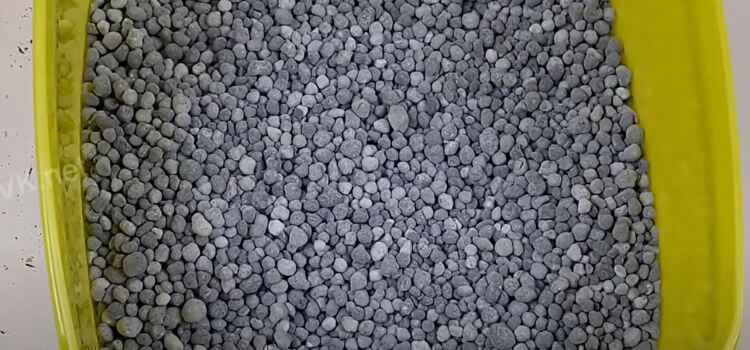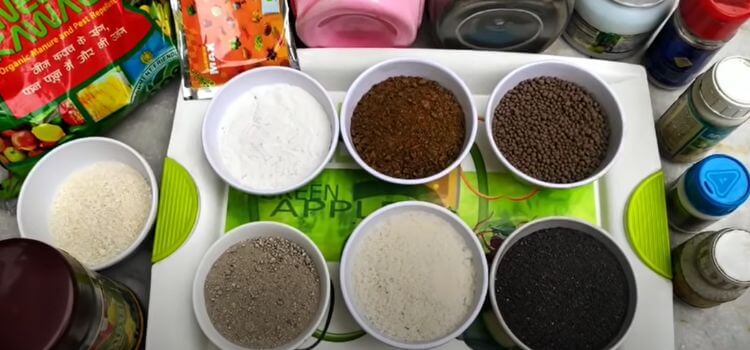As an Amazon Associate, I earn from qualifying purchases.
Yes, you can mix fertilizer with insecticide, but it depends on the product specifications. Each product must be compatible and safe for combined use.
Mixing fertilizer with insecticide can be an efficient way to care for your garden or crops. This method saves time and effort by simultaneously addressing two different needs: nourishment from the fertilizer and pest control from the insecticide. Gardeners and farmers often seek such combined applications to streamline their maintenance routines and ensure their plants receive both nutrients and protection against pests.
Before attempting this, always read the labels to confirm compatibility and avoid potential chemical reactions that could harm your plants. Proper mixing and application according to manufacturer guidelines are crucial for the safety and health of your garden.
Fertilizers And Insecticides
Understanding Fertilizers and Insecticides is crucial for anyone looking to maintain a healthy garden or crop yield. These substances serve very different purposes, but both play vital roles in the lifecycle of plants. Knowing how they work and whether they can be combined safely is essential for practical garden and farm management.
Differences Between Fertilizers And Insecticides
Fertilizers and insecticides are two distinct types of substances used in agriculture and gardening. Understanding their differences helps in their proper application.
- Fertilizers are nutrients that feed plants.
- Insecticides are chemicals that kill or repel insects.
Function And Usage Of Fertilizers
Fertilizers enhance plant growth and health. They provide essential nutrients like nitrogen, phosphorus, and potassium. These elements help in:
- Leaf development
- Root growth
- Flower and fruit production
Use fertilizers during crucial growth stages for best results.
Function And Usage Of Insecticides
Insecticides target pests that can harm plants. They work by:
- Disrupting insect nervous systems
- Destroying insect eggs and larvae
- Repelling insects from the area
Apply insecticides when pest activity is high or as a preventive measure.

Effects Of Mixing Fertilizer And Insecticide
Understanding the effects of mixing fertilizer and insecticide is crucial for gardeners. While aiming for a thriving garden, it’s tempting to combine steps. However, this approach may lead to surprising results.
Chemical Reactions And Unintended Consequences
Mixing fertilizers with insecticides can cause chemical reactions. These reactions might reduce their effectiveness. In some cases, they can create toxic compounds. Here’s what to watch for:
- Neutralization: Active ingredients can become inactive.
- New Toxins: Harmful chemicals might form.
- Application Issues: Mixtures may clog sprayers or spread unevenly.
Impact On Soil Health
Soil is a living ecosystem. The balance of nutrients and organisms is delicate. Mixing chemicals can tip this balance:
| Chemical Mix | Soil Effect |
|---|---|
| Fertilizer-Insecticide Combo | May harm beneficial microbes |
| Excess Nutrients | This can lead to nutrient runoff |
| Altered pH | Might affect soil structure |
Impact On Plant Health
Plants rely on healthy soil and correct nutrient levels. Insecticides should target pests, not plant growth. When mixed, the following can occur:
- Reduced Growth: Nutrient uptake may be hindered.
- Leaf Burn: Chemical burns can damage foliage.
- Stress: Plants might show signs of distress.
Safety Precautions
When combining fertilizer with insecticide, safety is paramount. It’s not just about protecting yourself but also about safeguarding the environment. By following these essential precautions, you can ensure both your safety and the health of your plants.
Protective Gear And Clothing
Wearing the right gear is crucial. It prevents direct contact with harmful chemicals. Here is a list of essential items to wear:
- Gloves: Choose chemical-resistant ones.
- Goggles: Protect your eyes from splashes.
- Long-sleeved shirt and long pants: Cover your skin.
- Boots: Rubber boots prevent foot exposure.
- Face mask or respirator: Avoid inhaling fumes.
Proper Mixing Techniques
Follow these steps to mix safely:
- Read labels: Check compatibility and instructions.
- Use correct ratios: Measure carefully.
- Mix in well-ventilated areas: Outdoor spaces are best.
- Use clean tools: Prevent contamination.
- Never rush: Take your time for safety.
Storage And Disposal Guidelines
Proper storage and disposal are vital. They protect against accidental poisoning and environmental harm. Follow these guidelines:
| Storage | Disposal |
|---|---|
| Keep in original containers. | Follow label instructions for disposal. |
| Store in a locked cabinet. | Never pour leftovers down the drain. |
| Keep away from children and pets. | Use community hazardous waste programs. |
Alternatives To Mixing
Many gardeners wonder about the possibility of mixing fertilizer with insecticide. While this can save time, there might be better approaches for plant health or pest control. Some alternatives can be just as effective without the risks associated with mixing chemicals.
Sequential Application Of Fertilizer And Insecticide
Applying fertilizer and insecticide at different times is a safer method. This ensures that each treatment works effectively without interference. Below are steps to follow for sequential application:
- Apply fertilizer to nourish plants.
- Wait for the recommended period.
- Apply insecticide to target pests.
By separating the applications, plants absorb nutrients better. Pests receive a direct hit from insecticides.
Organic And Natural Pest Control Methods
For those seeking eco-friendly options, consider organic and natural methods:
- Neem oil: A natural insecticide that also nourishes plants.
- Beneficial insects: Ladybugs and lacewings eat harmful pests.
- Diatomaceous earth: A powder that kills pests without chemicals.
These methods protect plants and maintain a healthy ecosystem in your garden.

Case Studies
Exploring whether you can mix fertilizer with insecticide reveals diverse outcomes. Real-world case studies highlight the consequences of chemical interactions. These instances shine a light on best practices for garden and crop care.
Instances Of Negative Effects From Mixing Chemicals
Chemical mixtures can lead to adverse effects. Here are documented instances:
- Plant Burn: Farmers reported foliage damage after mixing.
- Pest Resistance: Insects become immune when chemicals are combined.
- Reduced Efficacy: Mixtures diluted the potency of both products.
- Environmental Impact: Mixed chemicals harmed non-target species.
These scenarios underscore the importance of following label instructions. Manufacturers test products for individual use, not in combination. This testing ensures safety and effectiveness and minimizes harm to the environment.
Success Stories Of Separate Application
Separating applications of fertilizers and insecticides has proven beneficial.
- Yields improved when farmers applied products on different schedules.
- Crop health was better with targeted, separate treatments.
- Environmental impact decreased with careful application.
- Cost savings occurred as fewer products were wasted.
These successes highlight the value of respecting chemical properties. Farmers and gardeners who follow guidelines can expect optimal results. The key is to apply each product at its most effective time.
Regulatory Guidelines
Understanding regulatory guidelines is crucial when mixing fertilizer with insecticide. These rules ensure safe and effective use, protecting both the environment and public health. Let’s explore the legal and recommended practices.
Legal Restrictions On Mixing Chemicals
Each country has specific laws for mixing agricultural chemicals. These laws help prevent harmful reactions and environmental damage. Before mixing, always check that both products are compatible and legal to combine.
- Check product labels for mixing instructions.
- Understand the active ingredients in both products.
- Ensure compliance with both local and national laws.
Recommended Practices By Agricultural Authorities
Agricultural experts often provide guidelines to maximize safety and effectiveness. Following these can enhance crop production and minimize risks.
- Consult with a local agricultural extension office.
- Use recommended ratios and application methods.
- Apply during optimal weather conditions to reduce drift and evaporation.
Remember, always prioritize safety and environmental health while handling chemicals.
Frequently Asked Questions
Mixing fertilizers with pesticides is possible, but you must follow both products’ labels for compatibility instructions. Always perform a small test mix to ensure no adverse reactions occur before full-scale application. Safety and effectiveness should be your top priorities.
Yes, you can use insect killer and fertilizer simultaneously, but always check product labels for compatibility and application instructions to ensure plant safety and effectiveness.
Generally, you should apply fertilizer before using pesticides. This order helps plants absorb nutrients effectively and strengthens them against potential pesticide stress. Always check product labels for specific guidance.
Mixing insecticide with liquid fertilizer is possible, but always read labels for compatibility and safety instructions. Test a small area first to avoid damaging plants. Follow manufacturer guidelines strictly for proportions and application.
Conclusion
Combining fertilizer with insecticide can be convenient, yet caution is critical. Tailor your approach to your garden’s specific needs, respecting both timing and application rates. Always prioritize plant health and environmental safety. For successful integration, consult product labels and seek expert advice.

